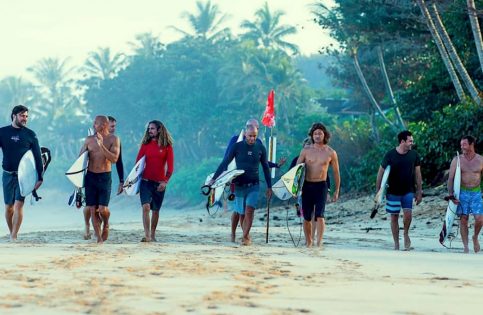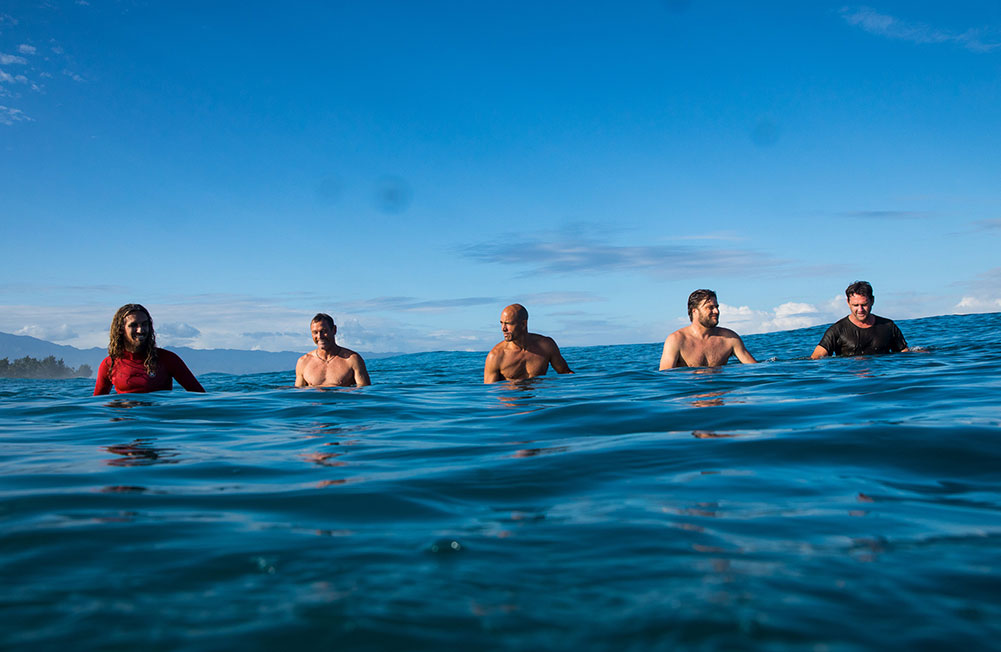Tragedy is how we all grow up
Surfing is really just a story of small groups. A bunch of kids get together, and something happens, they don’t know what, and it all catches fire, and everything changes.
Momentum was a movie about that. A surf flick par excellence. A movie about a Moment.
Momentum Generation is something more complex — an attempt to tell the story of what happens after the Moment. It’s as adult as Momentum was young. There’s a lot to enjoy in this movie, but like most adult things, it only partly works.
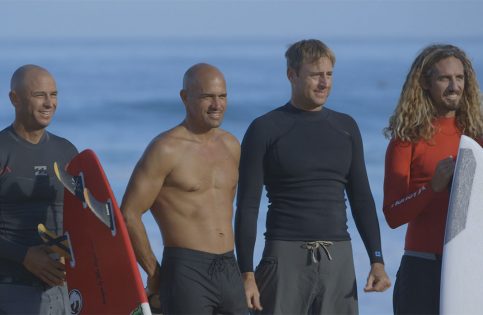
We all know the stars of the show, though god knows some of us weren’t born when they first appeared on the radar. This was 1991, surf industry recession time, and the whole 1980s — the neon, the hard men, the flat power surfing and city beach events and Occy-Curren-Pottz-Kong-Carroll-Lynch rivalries — were pretty much cooked.
Into the gap stepped this bunch of kids, and within a year or so, it all caught alight for them. One at a time, Momentum Gen re-introduces us: Kelly Slater, Taylor Knox, Shane Dorian, Benji Weatherly, Kalani Robb, Rob Machado, Pat O’Connell, Ross Williams. There were plenty of others, but this was the core group, the surfers Taylor Steele concentrated on.
What Taylor captured at the time was a moment of real change in the sport. Surfing techniques were being played with for the first time in almost a decade. The Momentum kids didn’t have the leg strength to match their power-surfing elders; instead they developed a mix of weighting and unweighting, pressure and release. Rocker replaced vee as the turning fulcrum. Turns were carves, then they were slides, then they were airs, then they were all three. It confused the surfing world, until it didn’t.
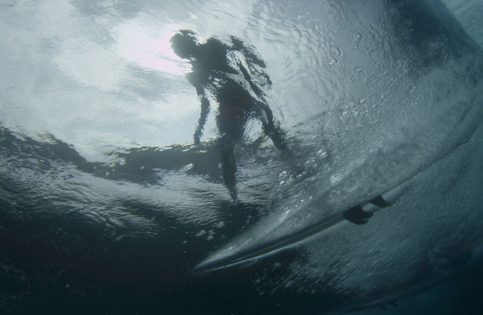
The music was of the moment too, a prototypically Californian moment. Offspring, Pennywise, Blink-182: they were no match for the power rock’n’roll of earlier days, nor truth be told for the cynicism and fury of the original punks, the Clash and the Pistols and the Ramones and Elvis Costello.
But they were real and they were kinda pop, and Momentum was nothing if not pop — just a real simple quick cut surf film, fun and energetic, not overburdened with plot. Plot? Who needs it? We’re surfing!
Now the New School are adults, thus it is the time for plot, storyline and all that stuff, and Momentum Gen goes after it with all the pro tools at a modern documentary feature maker’s disposal. The film’s storyline is straight out of the handbook: Nice young Lost Boys luck into friend’s house at Pipe, take over the world! Then fall out with each other a bit. Mentor dies and they all are forced to grow up.
To make that work, you need archive and lots of it, and archive is MG’s greatest strength. Archive plays best off memory, and a lot of the memories here are fresh and funny, candid in a way you only get from people who’ve grown up and away a bit from the original events. Benji recalls inviting Taylor in from his van on the street for dinner, then making him do the cleaning, Shane-o is bagged out for his Blue Steel thing, Pat for his disturbing obsession with his testicles, and you see the supporting evidence for it all.
You also need revelation, stuff People Didn’t Know. In this case, it’s the falling out between Kelly and Rob: Kelly the uber-competitor, growing in power and status, collecting world titles like Halloween candy, while Rob tries to carve out his own space in the same world. Their friendship twists and turns, rising and falling around events. Kelly takes a new board meant for Rob from under Maurice Cole’s house in Hossegor; Rob drags Kelly and the board back to Maurice’s and makes him de-grip and de-sticker it. They surf a turning-point heat at Pipe, when Kelly famously high-fives Rob after a Machado barrel, but goes on to win anyway, getting another title in the process. Was it just fun, or was it deliberate, a competitive tactic? (There’s a glaring error in the centre of this sequence, by the way, when the filmmakers try to graft events from 1998, Kelly’s fifth straight world title, into events from 1995, when he and Rob did the high five thing at Pipe. It magnifies the sense here and there in MG of the storyline controlling events, rather than the other way around — always a risk in documentary.)
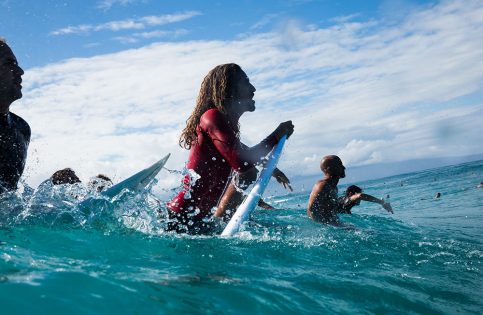
The other big turning point is a truly awful tragedy, the death of Todd Chesser under a massive cleanup set at Outside Alligators in 1997. Chesser is presented as the New School’s archetypal guide into manhood, and his effect on the Benji House in both life and death, and Benji’s instinctive reach toward Jeannie, Todd’s bereaved mother, is handled really sensitively and well.
To me this is where Momentum Gen earns its stripes. It could have gone with sentiment. Instead it goes where the original Momentum could never have gone, toward a very adult idea: Tragedy is how we all grow up.
The New School aren’t the kids of Momentum any more. A reunion is briefly shot at Kelly’s house near Pipe, but it’s not a highlight. Their lives have taken different paths. The really cool refreshing thing in MG is that archive: seeing them back in a time when they were just a little gang of kids having fun together, and semi accidentally changing the sport. Take note, supergrommets of 2018! You’re only young once.
Momentum Generation is available in Australia this coming Monday 5 on iTunes.
